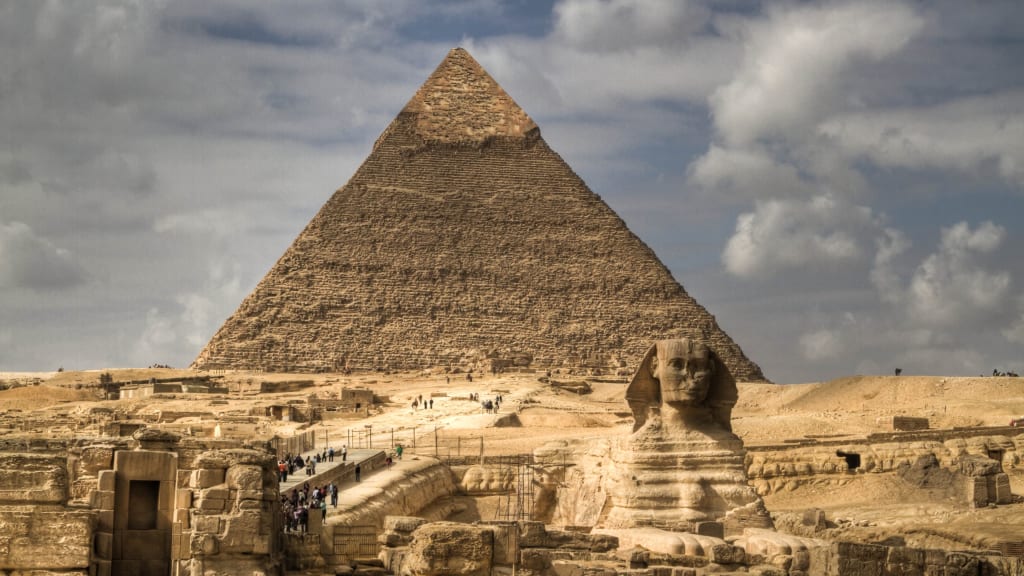
Antiquated Egypt was a civilization that risen around the Nile Stream in northeastern Africa more than 5,000 a long time back. It kept going for almost 3,000 a long time and is regularly partitioned into three periods: the Ancient Kingdom, the Center Kingdom, and the Unused Kingdom.
Amid this time, the antiquated Egyptians created a advanced culture, with accomplishments in craftsmanship, engineering, religion, science, and arithmetic. They built amazing structures such as the pyramids, sanctuaries, and monoliths, and made complex craftsmanship on papyrus scrolls, earthenware, and dividers.
The old Egyptians moreover created a complex framework of hieroglyphic composing, which they utilized to record their history, devout convictions, and way of life. They accepted in numerous divine beings and goddesses, and their religion played a critical part in their day by day lives.
Egypt was ruled by pharaohs, who were considered to be both divine and political pioneers. They supervised the development of fantastic structures, counting the Extraordinary Sphinx and the pyramids, which were tombs for themselves and their families.
In spite of its amazing accomplishments, old Egypt was not without its issues. The civilization confronted periods of political precariousness, outside attacks, and natural challenges such as dry spell and starvation. In the long run, it was prevailed by exterior powers, counting the Persians, Greeks, and Romans, driving to the decay of the old Egyptian civilization.
Egyptian civilization alludes to the culture, society, and accomplishments of the individuals who occupied the Nile Waterway Valley in northeastern Africa for thousands of a long time. The civilization is customarily isolated into a few periods, counting the Early Dynastic Period, the Ancient Kingdom, the Center Kingdom, the Modern Kingdom, and the Late Period.
Amid its long history, Egyptian civilization created a complex social and political framework, modern craftsmanship and engineering, and a profoundly created framework of composing, science, and religion. A few of the outstanding accomplishments of old Egypt incorporate:
Design: The Egyptians are popular for their fantastic design, counting the pyramids, sanctuaries, and monoliths. These structures were built utilizing progressed building procedures, counting inclines, pulleys, and levers.
Craftsmanship: Egyptian craftsmanship was exceedingly stylized and regularly portrayed divine beings, pharaohs, and lifestyle . They made works in a assortment of mediums, counting portray, form, and ceramics.
Composing: The Egyptians created a framework of hieroglyphic composing that was utilized to record everything from devout writings to government orders. The composing was profoundly complex and included thousands of images.
Religion: Egyptian religion was polytheistic, with a complex pantheon of divine beings and goddesses. The pharaoh was accepted to be a divine figure, with the capacity to communicate with the divine beings and guarantee the well-being of his individuals.
Medication: The Egyptians made critical progressions in pharmaceutical, counting the utilize of home grown cures and surgical procedures such as trepanation (boring gaps within the cranium).
In spite of its numerous accomplishments, Egyptian civilization too confronted challenges such as political precariousness, remote attack, and natural issues such as dry spell and starvation. The civilization declined over time and was inevitably prevailed by exterior strengths, counting the Persians, Greeks, and Romans. In any case, its bequest proceeds to impact craftsmanship, engineering, science, and culture around the world.
The pharaoh was the title given to the lords of old Egypt, who were considered to be both political and devout pioneers. The pharaohs were seen as divine creatures, with the control to communicate with the divine beings and guarantee the thriving and well-being of their individuals.
The part of the pharaoh advanced over time, but a few of the key obligations included:
Keeping up arrange and soundness: The pharaoh was mindful for keeping up law and arrange all through the kingdom. They were moreover the extreme specialist in things of remote arrangement and fighting.
Building and keeping up framework: The pharaoh directed the development of open works ventures such as sanctuaries, pyramids, and water system frameworks, which were basic for the working of the kingdom.
Guaranteeing the ripeness of the arrive: The pharaoh was seen as the key to guaranteeing the ripeness of the arrive and the success of the individuals. They were capable for supervising rural hones and guaranteeing that the Nile Stream overflowed at the correct time.
Conducting devout ceremonies: The pharaoh was too capable for conducting devout ceremonies and communicating with the divine beings. They were seen as the middle person between the divine beings and the individuals.
The pharaohs were buried in expound tombs, which were regularly filled with treasures and offerings to assist them within the the great beyond. The foremost popular of these tombs are the pyramids of Giza, which were built amid the Ancient Kingdom period.
Generally, the pharaoh played a central part within the culture, society, and religion of antiquated Egypt, and their bequest proceeds to captivate and motivate individuals around the world nowadays.





Comments (1)
Superb article bro